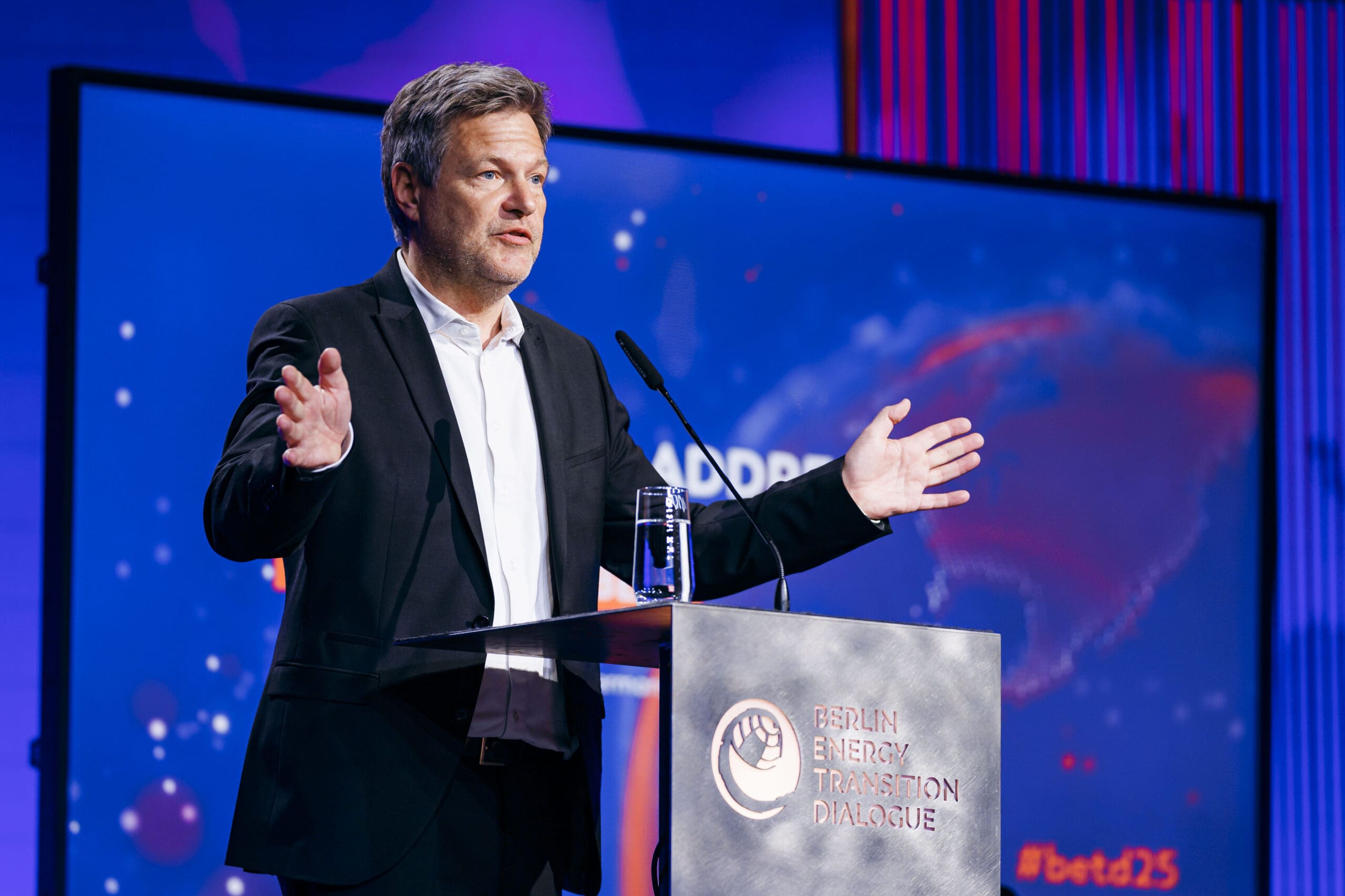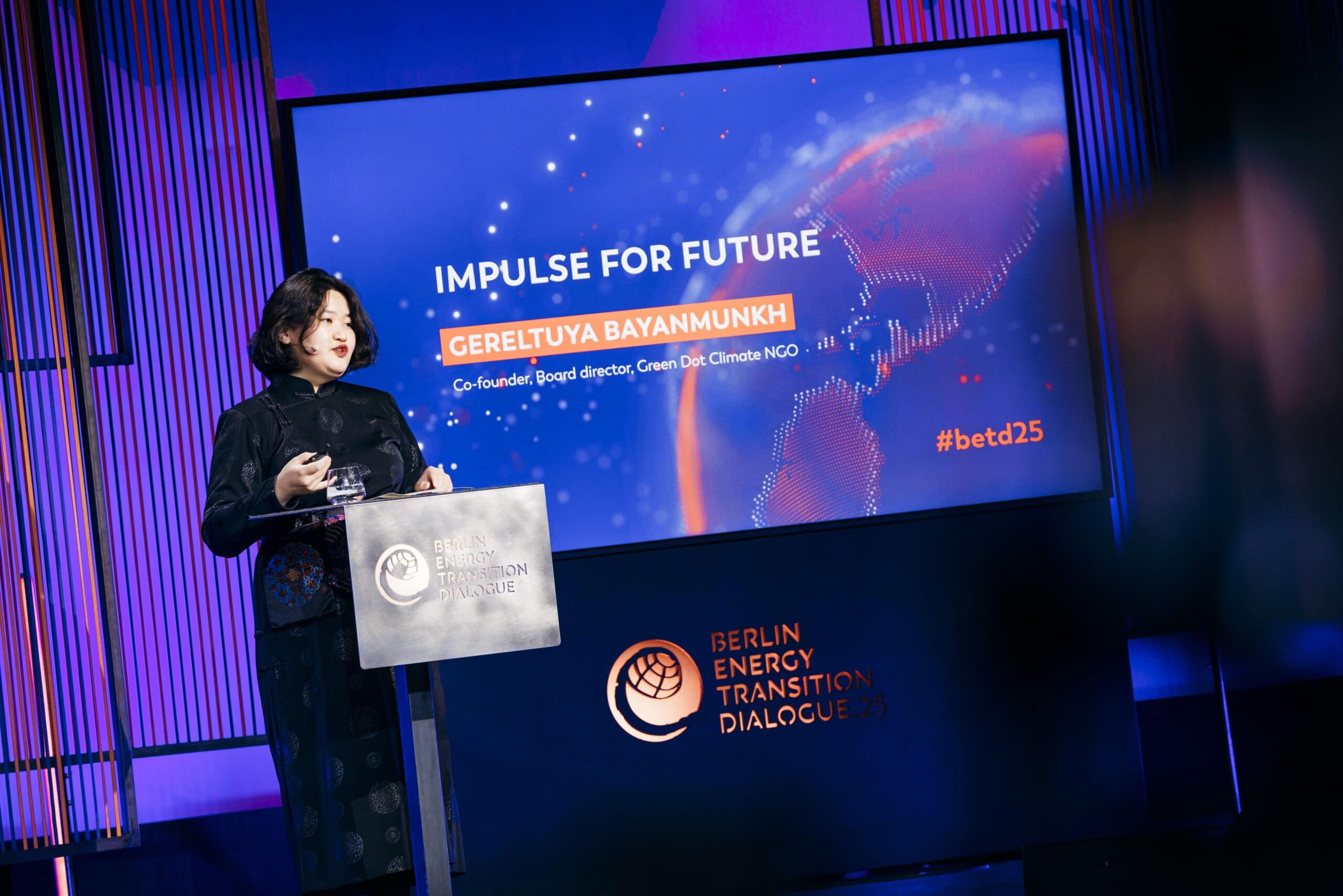“Listen, Don’t Just Talk”: Speakers at Berlin Energy Transition Dialogue 2024 call for focus on respect and inclusion
Respect, inclusion and true parity in partnerships were key demands from speakers at BETD 24.

The high point of Berlin Energy Transition Dialogue (BETD) 2025 was a rousing speech by the outgoing German Federal Minister for Economic Affairs and Climate Action, Dr. Robert Habeck. This speech, given shortly after the passage of a historic vote in the German Parliament that is set to unlock EUR 500 billion in spending for infrastructure, national defence, and climate change, highlighted the connection between these three topics as key to Germany’s new vision as it prepares for a new administration. As part of this new vision, the country will view spending on infrastructure and climate action to be as important for the long-term security of the country as increased military investment. Ominous messages about an apparent global shift away from cooperation and towards the use of force were tempered by a strong commitment from Germany—and like-minded countries—not to abandon collective action and, in fact, to reinvest in collaboration in the face of substantial challenges.
Minister Habeck emphasised the importance of reducing dependency on fossil fuels while supporting renewable energy development as a way of increasing security. He also noted that despite the many current geopolitical crises we are facing, there is another crisis that eclipses them all: climate change. Without confronting this, he said, our freedoms will be curtailed more severely by climate disruption than by any other challenge, and we will fail to leave a safe and secure planet for future generations.
So how does this link to just transition? Beyond the remarks of Minister Habeck, an overarching theme linked climate change, collaboration, cooperation, and the need to reduce dependency on fossil fuel while bolstering support for workers and communities.
Trade tariff wars will almost certainly lead to job losses and could dramatically increase energy prices. Jennifer Layke of the World Resources Institute, who attended a BETD side event on green skills for just energy transition, was clear that the necessary response should be to invest in retraining workers in sectors that could quickly absorb them, reduce demand for energy, and tout investing in energy efficiency as a way to boost jobs and keep workers employed.
On a similar note, Gereltuya Bayanmunkh, a youth advocate and climate activist from Mongolia, noted that her country’s energy needs have historically been tied to imports, which has limited the autonomy of the national energy market due to the reliance on energy from beyond Mongolia’s borders. At the same time, she noted that young people need more access to information and training to allow them to pursue local energy solutions.

Another delegate, from Colombia, noted that although there are community-level representatives in her country who are eager to invest in clean energy, without access to networks and south–south collaboration, they cannot learn from the experiences of others in order to know if they are pursuing the right tools.
Meanwhile, Francesco La Camera of the International Renewable Energy Agency spoke in a side event about the reality that markets will ultimately direct investment. He argued that although trade barriers could slow transition, those countries working in collaboration with each other rather than in opposition will develop the supply chains with the least resistance and therefore attract the most investment dollars.
Tariffs and barriers can act like boulders thrown into a river; boulders may divert the water, but they won’t stop it. Water will flow around the rocks and find a way, as will the now unstoppable renewable energy transition.
The overarching message throughout the event related back to just transition. If the barriers to transition are raised, countries must collaborate to remove them, reduce them, or find alternative ways to support each other. Germany, through its simultaneous investment in military development, infrastructure, and climate action, has demonstrated a clear belief that these three issues are fundamentally interlinked and that to neglect one would be to the detriment of them all.
The delegates at the conference all pointed to the need for partners to work together, which is at the heart of just transition. This was true whether they were representing workers concerned about facing employment disruption, young people who need access to training and resources to support their own country’s energy transition, communities that need connection for knowledge-sharing and experience-building, or investors wanting to support secure and collaborative supply chains across countries. Ultimately, BETD 2025 taught us that, at a time of global tension related to energy, security, and climate, there is still an appetite for cooperation to ensure freedom, security, and a safe planet.
Philip Gass is a Director at the International Institute for Sustainable Development’s Energy Program, specialising in Just Transitions and Canada. His work focuses on the impacts of the transition from coal, oil, and gas to renewable energy, ensuring policy plans are equitable and inclusive.
Receive updates on just energy transition news, insights, knowledge, and events directly in your inbox.